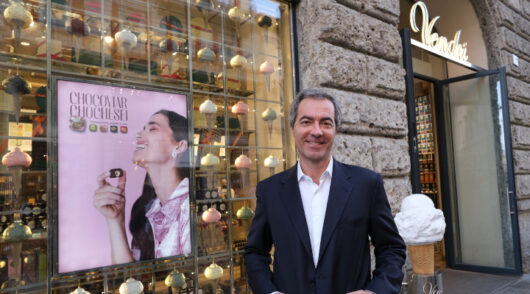There’s a new consumer mantra: “when in doubt, toss it out”.
With pressure on housing internationally, shoppers are buying fewer higher-quality items to save space – and that’s is expected to have long-term ramifications for retailers, says a new report.
Decluttering: Anatomy of a Consumer Trend and How Retailers Can Win, from international think tank Fung Global Retail & Technology says while for some people downsizing and organising belongings is a matter of choice, for others the process is a necessity as rising housing prices force people to live in smaller homes, says the report.
Others are focussing on sustainability and the ethical standards of manufacturers, writes Fung Global Retail & Technology MD Deborah Weinswig. Retailers, especially those in fast fashion that have relied on consumers buying a larger number of lower-priced items, will have to adapt to changing consumer needs and values.
“Consumers’ future priorities will be ethics, a concept of ‘disownership’ and sustainability,” Weinswig writes. “Retailers … should align their product and service offerings more closely within the values of their target customers.”
While the idea of having with fewer possessions has been around for centuries, the term “declutter” was born in the 1970s and the concept has continued to gain popularity, she writes. Decluttering resonates particularly strongly with urban dwellers, who struggle to fit belongings into small apartments.
Now millennials, the largest generation in history, are more consciously frugal in terms of living arrangements, product consumption and travel expenses. The growth of the “sharing economy” has also resulted in the popularity of platforms such as eBay, Etsy and Craigslist, further eroding the purchase of new products.
Long-term results
Weinswig believes this will have long-term results for more traditional retailers and brands, especially in clothing. Fast fashion had helped apparel consumption skyrocket over previous decades. The average woman owned 120 items of clothing last year, up from 36 items in 1930, according to Cladwell, a company that helps users create their own capsule wardrobe. However, this trend may be reversing. A growing focus on ethical consumption has created consumer concern about hiring practices – sometimes involving children – in fast-fashion manufacturing.
Some retailers are responding to the evolving preferences of shoppers. Patagonia’s Common Threads initiative provides a framework for responsible consumption based on five precepts: reduce, repair, reuse, recycle and reimagine. Japanese retailer Muji offers waste-reducing packaging, minimalist housewares and eco-friendly products.
Other brands espousing minimalism include Scandinavia’s Bang & Olufsen and Cos, Calvin Klein in the US, and Japan’s Uniqlo.
“Decluttering is a long-term trend that is here to stay,” Weinswig writes. “Retailers can capitalise on this opportunity by responding to the evolving preferences of their customers, and seeking ways to influence consumer behaviour.”
Based in New York, Fung Global Retail & Technology has a research team across New York, London and Hong Kong that follows retail and tech trends. Weinswig is a former Wall Street and retail tech analyst and startup adviser.







